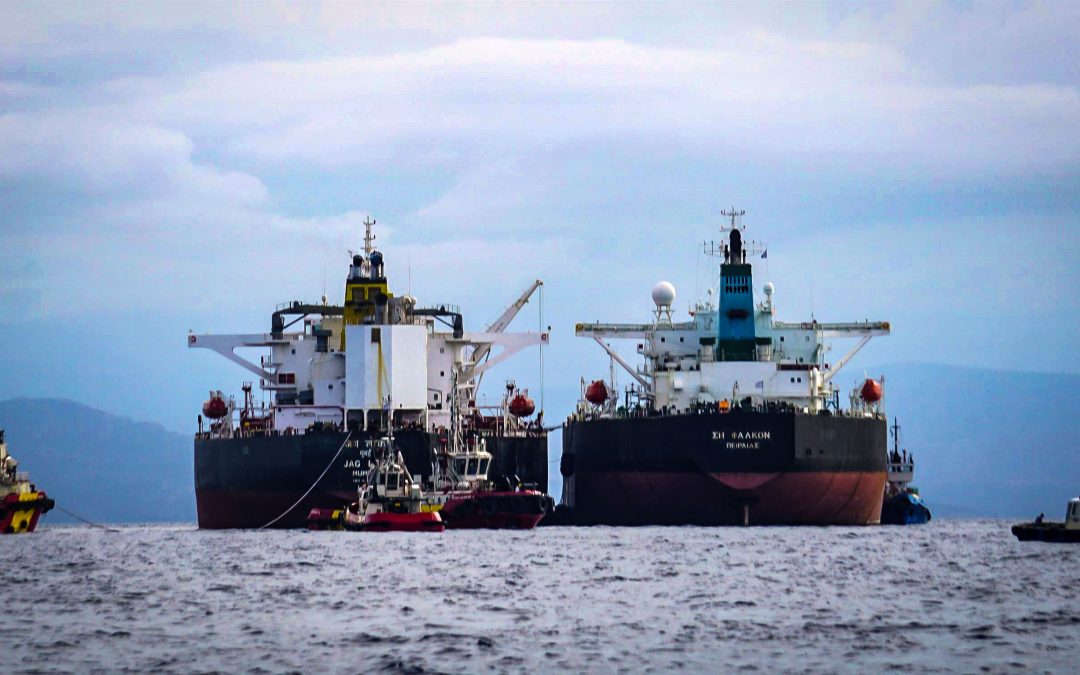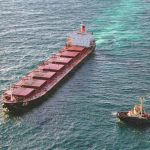Global alternative marine fuel markets have been a hot topic at Oslo’s Nor Shipping Trade Fair, with Greek shipowner Angelicoussis Group teaming up with Chevron to explore ammonia as marine fuel, and Fortescue Metals Group planning to promote a worldwide carbon tax on shipping.
SHIPPING
Member states of the International Maritime Organization are aiming to finalize new greenhouse gas emissions targets and regulations in early July, which are meant to provide market signals to industry stakeholders to invest in sustainable fuels, Secretary-General Kitack Lim said June 5 at the Nor Shipping event in Oslo. The UN’s shipping agency will hold the 80th session of Marine Environment Protection Committee July 3-7, where some 170 countries are expected to conclude a Revised Greenhouse Gas Strategy for the coming decades. The IMO has set targets to reduce the carbon intensity of international shipping by 40% by 2030 and to halve emissions by 2050 from 2008 levels, but environmentalists and shipping industry participants said those do not align with the Paris Agreement’s climate goal to avoid climate disaster.
METHANOL
Methanol’s application as a marine fuel continued to grow. Stena Line ordered two hybrid propulsion ships capable of running on methanol as part of its efforts in shifting to renewable fuels to meet future decarbonization targets.
Trafigura suggested hydrogen has a low volumetric energy density and needs to be processed into e-methanol to be feasible for the shipping industry. Platts, part of S&P Global Commodity Insights, will launch daily production cost-based renewable methanol prices for North America, Europe and Asia, in response to market feedback and maritime industry’s need for price valuations for sustainable methanol, effective June 19, Platts announced on May 31.
LNG
LNG bunker prices in Europe fell in line with European LNG values. The Rotterdam LNG bunker fuel price was assessed at $11.805/MMBtu June 6, down $2.405/MMBtu compared to May 5. It also hit a two-year low since June 4, 2021, when it was assessed at $11.707/MMBtu. Looking ahead, 19 vessels with alternative fuel propulsion were ordered in May, according to data from DNV’s Alternative Fuels Insight (AFI). Seven LNG-fueled vessels and 12 methanol vessels were ordered in May. Platts launched one assessment for LNG bunker fuel at Port Sines on May 1, to complement its price assessments at Rotterdam, Singapore, and Jacksonville.
AMMONIA
Low-carbon ammonia market activity continued to be heard in May and early June, with producers bidding $400/mt for Northwest Europe renewable-power derived ammonia (green ammonia), but offering at $700/mt. This was lower than April’s offers heard at around $800-1200/mt while April’s bid was almost unchanged at $400-500/mt, reflecting an ongoing weaker ammonia market. Conventional ammonia for Northwest Europe spot deliveries averaged $368.60/mt in May down from April’s average of $407.50/mt. Prices continue to weaken with S&P Commodity Insights assessing CFR spot for Northwest Europe at $360/mt June 7. Fortescue Metals Group plans to promote “green ammonia” as marine fuel globally and wants a worldwide carbon tax on shipping to make the zero-emission fuel commercially competitive, Executive Chairman Andrew Forrest said June 6. Many shipping professionals said ammonia generated from renewable hydrogen is a strong candidate for a future fuel, but ammonia-fueled marine engines are not expected to be technically ready until 2024-2025. “We are developing ammonia fuel, and ammonia bunkering around the world,” Forrest said at the Ocean Leadership Conference in Lillestrom, part of the Nor-Shipping event.
BIOFUELS
In European biodiesel, the market continues to respond to allegations of fraudulently-certified imports from Asia that have put downward pressure on prices in recent months. Prices have seen some recent recovery, but buyers report lower confidence in advanced biodiesel and feedstocks. There have been reports of slowing production amid low prices and high supply, but crop-based production margins have seen some support from lower rapeseed prices.
In its Transport in Transition report published last month, DNV expects the shipping energy mix to compromise 50% low- and zero-carbon fuels mainly based on renewable hydrogen. Based on DNV’s study, global production capacity of sustainable biofuels could grow from 11 million mt of oil equivalent currently to 23 million mtoe by 2026 before a further increase to somewhere between 500 million mtoe and 1.3 billion mtoe by 2050. However, the shipping industry would need to consume 250 million mtoe/year by 2050 if it was to fully decarbonize primarily using biofuels, according to DNV.
Platts, part of S&P Global Commodity Insights, launched a new blended bio-bunkers assessment in Singapore called Platts Bio-Bunkers B24 Singapore (ABUNA00), effective May 8, 2023. The new Singapore delivered B24 bio-bunkers calculated assessment reflects a ratio of 76% fuel oil based on Platts benchmark Marine Fuel 0.5% Bunker Dlvd Spore $/mt assesses. Platts also launched four assessments for biofuel B35 in Indonesia.
Source: Hellenic Shipping News






